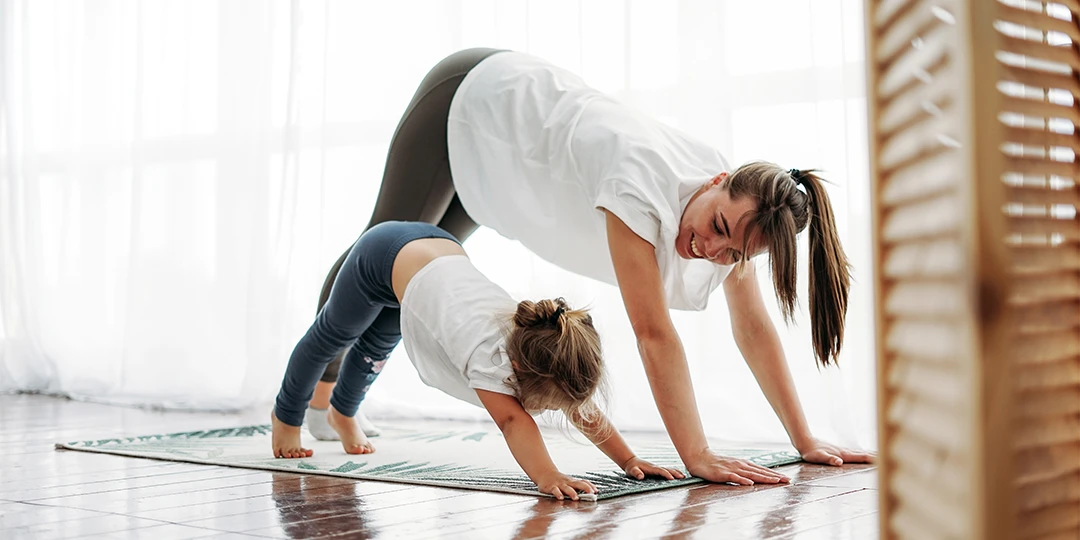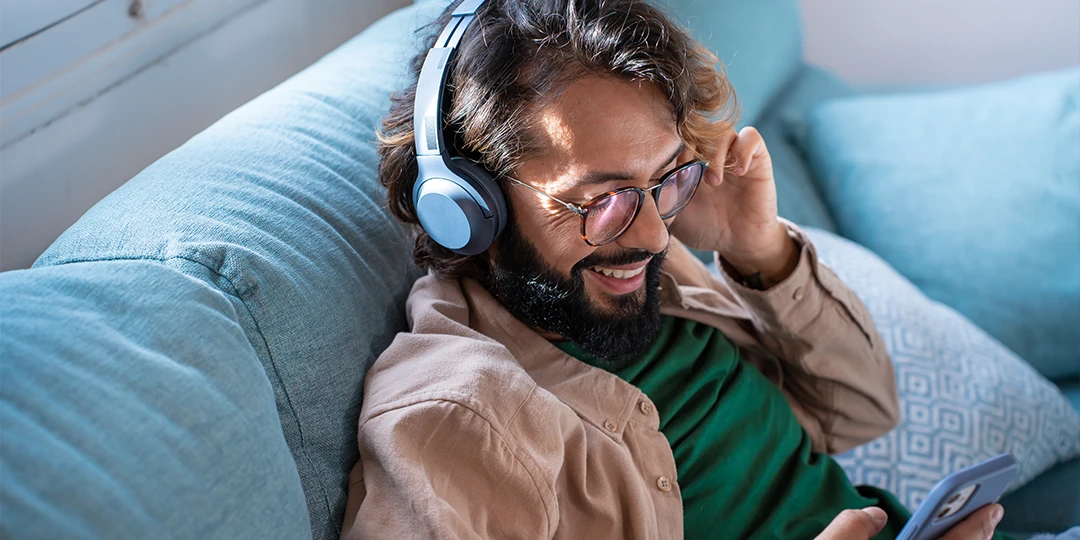If you’re like most people, you put lots of time and effort into caring for others. Your family members, partner, friends, coworkers, and others are probably at or near the top of your list. You know who doesn’t typically rank high enough? You.
Self-care is a practice that can be transformative in our personal, social, and professional lives, yet it often gets pushed to the back burner for several reasons. This article explains what self-care is, why it’s essential, and how it affects mental health. It also debunks some common myths about self-care and provides links to helpful resources.

What Exactly Is Self-Care?
We’ve all heard of self-care, but if you’re not currently practicing it, you might wonder what it entails. Basically, self-care refers to intentional actions you take to address your physical, mental, and emotional health.
These practices cover the spectrum, from working some exercise into your daily routine and getting more sleep to engaging in mentally stimulating activities or making yourself happy with tasty treats or fun experiences. The common thread is that these activities benefit your mental health and overall wellness. Keep in mind that they don’t have to be expensive or time-consuming to be effective.
Why Self-Care Is Essential for Mental Health
In today’s busy (sometimes hectic) world, people sometimes push self-care to the back burner. “I’ll focus on that when things slow down a little,” we tell ourselves. The problem is that things rarely, if ever, slow down for many people.
Experts agree that self-care isn’t just a “nice to have” practice. It’s essential for good mental health. People who practice self-care get an incredible return on their investment of time and effort, including:
- Enhanced self-esteem and sense of self-worth
- Increased optimism
- Reduced feelings of anxiety and depression
- A more positive outlook on life
Of course, those are just the mental and emotional benefits. Self-care practices like eating better and exercising regularly can also improve your physical health. And the beauty of improvements in any area of your health and wellness is that they can create powerful synergy. When your mood improves, you’re more likely to stick with an exercise regimen, which then helps you feel more energized and positive, and so on.

Everyday Self-Care Practices
Self-care has a cumulative effect, with people who practice it regularly enjoying the most benefits. Ideally, you should build self-care into your daily life in four different ways:
Physical self-care
Any activity that makes you feel stronger, healthier, and more energized is helpful. Physical self-care includes things like regular workouts (something as simple as walking), preparing nourishing meals, stretching, staying hydrated, and getting plenty of sleep.
As you can see from this list, the activities don’t have to be difficult or costly. Even many paid activities have a free alternative. Take yoga, for instance. If you don’t want to spend money on in-person classes, you can find instructions in free YouTube videos. Invite some friends to join you in your living room, and you’ve got your own yoga class!
Emotional self-care
Activities like journaling, doing a “digital detox,” and listening to music that lift your spirits can help you cultivate peace of mind and enjoy better emotional regulation. So can establishing boundaries for your interactions with friends, family, coworkers, and the world in general.
Social self-care
It’s often said that humans are “social animals,” and even the most introverted tend to have needs in that area. Social self-care can include calling a friend to check in, sending someone an encouraging text message, or participating in community events. “Me time” is valuable and important, but so is “us time.”
Mental/spiritual self-care
Nourishing your mind and spirit is essential. Reading an engaging or inspiring book, meditating, doing breathing exercises or visualization, or practicing gratitude can be helpful. Remember that spirituality and religion are separate concepts, and you can tend to your spiritual needs without being involved with any religious group or entity.

Long-Term or Extended Horizon Self-Care Strategies
In addition to your daily self-care practices, it’s helpful to have activities you might not pursue every day but that contribute to your physical, mental, and emotional health. Your interests should drive your choices, but many people derive joy and fulfillment from things like:
- Exploring a new hobby. Whether it’s gardening, painting, cooking, knitting, learning a new language, or some other skill or activity, the things you do that are driven by interest or enjoyment rather than obligation or necessity can be very beneficial. Immersing yourself in a hobby you’re passionate about can be a welcome “vacation” from day-to-day tasks and concerns.
- Volunteering. There is no shortage of opportunities to contribute your time and effort to a cause that’s meaningful to you. Animal shelters, food banks, and other local non-profits always need volunteers. When you lend a hand, not only are you helping advance their cause, but you’re also probably working with others and enjoying some social time and shared successes.
- Traveling. Visiting and learning about new places can be exciting and rewarding. And “traveling” doesn’t necessarily mean going far. Exploring a nearby museum, a local park you’ve never visited, or another new-to-you location in your community can be very satisfying.
- Starting a DIY project. Enhancing your home, office, or other space can be fun and immersive. For example, let’s say you’ve always wanted a shelf on a particular wall in your home. Buying the lumber, cutting it to length, applying multiple coats of stain, installing the brackets, mounting the shelf, and adding the plants, art, or other items you envision there can leave you with a strong sense of accomplishment and empowerment.
- Foster a connection with nature. Spending time outdoors benefits your mind and body. Whether it’s hiking, gardening, exercising, or simply sitting on a park bench and admiring the view, the fresh air and change of scenery can do wonders.
Ultimately, combining daily practices with longer-term activities is a great way to approach self-care.
Busting Myths About Self-Care
Tending to your physical, mental, and emotional needs can significantly improve your overall life satisfaction. So, why doesn’t everyone prioritize self-care? In many cases, it’s because they’ve heard some of the many common myths about this practice, including:
MISCONCEPTION:
Self-care is selfish
The fact that an action of yours benefits you doesn’t make it selfish. Selfish acts are characterized by lacking consideration for others. Self-care—like putting on your airplane oxygen mask before assisting a fellow traveler—empowers you to support your family, friends, and community.
MISCONCEPTION:
Self-care is time-consuming
Personal care activities can be as extended or brief as you like. Taking five minutes twice a day to do some deep-breathing exercises to lower your stress level can enhance your well-being without having any meaningful impact on your schedule.
MISCONCEPTION:
You have to do self-care alone
Some self-care practices are things you do alone, but being with others can also be valuable. Many people benefit from a mix of solo and group activities.
MISCONCEPTION:
Self-care is expensive
Your financial commitment to self-care, like your time commitment, can be as large or small as you like. Using the deep-breathing example again, your cost for that helpful practice is zero dollars.
MISCONCEPTION:
Self-care is only for women
That’s not true. Everybody deserves to be healthy and happy, and self-care is a powerful tool for achieving those goals.
MISCONCEPTION:
You must “earn” time for self-care
Here again, that’s incorrect. You don’t have to be “at the end of your rope” to feel comfortable taking steps to support your physical and mental health. In fact, carving out some downtime when you’ve reached your limit is more self-defense than self-care. The goal is never to reach that point.
If you’ve ever felt guilty about pursuing self-care, know that the myths about it are wrong. You can bet that the people perpetuating them understand, at some level, how important self-care is but just haven’t found the courage yet to acknowledge that fact.

Emphasizing the “Self” in Self-Care
You can find worthwhile recommendations for how to practice self-care in this article and all over the internet, but it’s essential to remember that you need self-care that works for you. The activities that your friend, coworker, or favorite influencer recommends could be ideal, but it’s also possible that they don’t align with your personality, your current situation, etc. The most effective self-care plan is one tailored to your needs and preferences.
It can be useful to create a “self-care menu” and keep it handy. Some of those activities might become part of your regular routine, while others are there for consideration when you need a change of pace. Having a list is important, since you may find it challenging to come up with self-care ideas when you’re stressed or depressed and need them most.
Self-Care for Better Mental Health: Essential Wherever You Are
Many self-care activities are likely things you’ll do at home. But it’s crucial to remember that the concept of self-care and its support for better mental health is relevant wherever you are—at home, at work, or anywhere else.
Many companies today prioritize employee wellness, weaving self-care into their operations in various ways, like we do, to support their team members’ mental health. If you work for a business that recognizes the importance of self-care, that’s great! If you don’t, you might consider making that one of your search criteria the next time you look for new career opportunities.
If you haven’t historically focused on self-care, the good news is that you can start today, and it doesn’t require a huge amount of time, money, or effort. In fact, experts say that the best way to create a sustainable habit is to start slowly and build gradually.
We all owe it to ourselves to practice self-care! In addition to helping us achieve better balance and enjoy more happiness in our lives, self-care makes us better partners, friends, employees, and community members. It’s a true win-win!
So, what will you do for yourself today?


